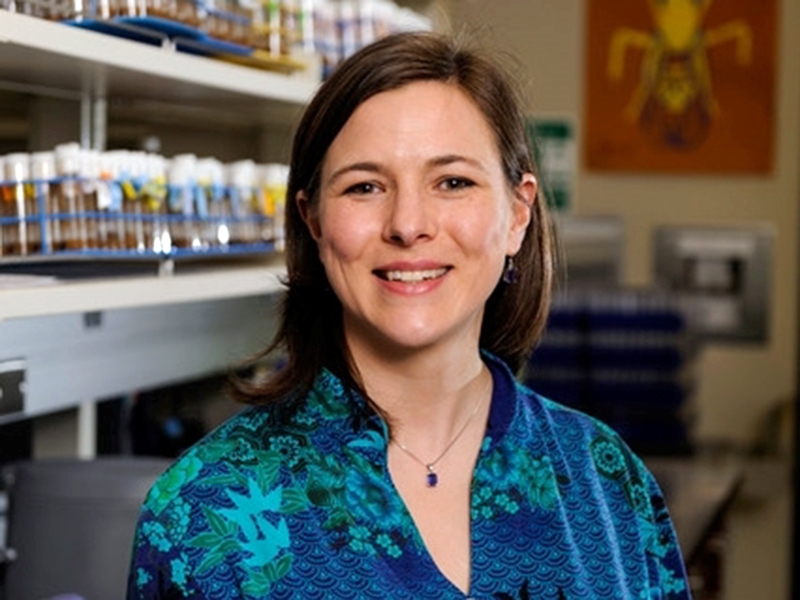The Arkansas Integrative Metabolic Research Center will host Laura Reed, professor of biology at the University of Alabama, at 12:55 p.m. Wednesday, April 5, via Zoom. Reed will discuss the effect that genotype-by-diet interactions have upon variability in the expression of traits related to Metabolic Syndrome (MetS).
Metabolic Syndrome (MetS) is a constellation of symptoms, including obesity, elevated blood lipids and insulin resistance, that are predictive of type-2 diabetes and cardiovascular disease. In Drosophila melanogaster, genotype-by-diet interaction effects explain a substantial amount of the variation in Metabolic Syndrome (MetS)-related traits. With genetically variable populations of inbred fly strains, we have genetically mapped loci contributing to dietary variation in MetS-like traits as well as to over 420 primary metabolites. We have determined that the loci for the main genetic effects on metabolic phenotypes are largely distinct from those loci that mediate genotype-by-diet interactions.
In addition, some metabolite phenotypes exhibit a simple genetic architecture (only a few associated QTLs), while others exhibit associations throughout the genome, and many QTLs exhibit pleiotropic effects across multiple metabolites. We use Eigenvector Metabolite Analysis to link metabolomic, transcriptomic and phenotypic data and are using Gaussian graphical models to identify potential novel metabolic pathways based on correlational data. Further, we find that there are complex genotype-by-environment interactions with exercise and commensal microbiota.
Reed also served as the program director of the Genomics Education Partnership since 2017. Reed received her B.S. in biology from the University of Oregon and Ph.D. in ecology and evolution from the University of Arizona. After completing an NIH-NRSA postdoctoral fellowship at North Carolina State University, she joined the faculty at the University of Alabama 2010.
Utilizing the Drosophila genus' diversity, the Reed Lab focuses on understanding the evolution of complex traits from both the genetic and environmental perspective.
The Genomics Education Partnership is a nationwide collaboration of faculty from more than 200 institutions, largely primarily undergraduate institutions, which aims to integrate active learning into the undergraduate curriculum through Course-Based Undergraduate Research Experiences centered in genomics and bioinformatics. More than 3,900 students per year currently participate in courses that utilize Genomics Education Partnership materials.
This seminar will only be available via Zoom.
This event is supported by the NIGMS of the National Institutes of Health under Award Number P20GM139768. The content is solely the responsibility of the authors and does not necessarily represent the official views of the National Institutes of Health.
Topics
Contacts
Macey Graham, communications graduate assistant
Division for Research and Innovation
479-575-5901,
Andy Albertson, senior director of communications
Research and Economic Development
479-575-6111,
